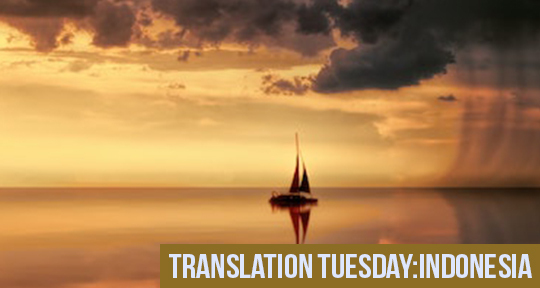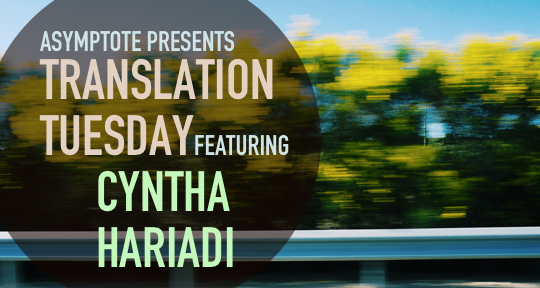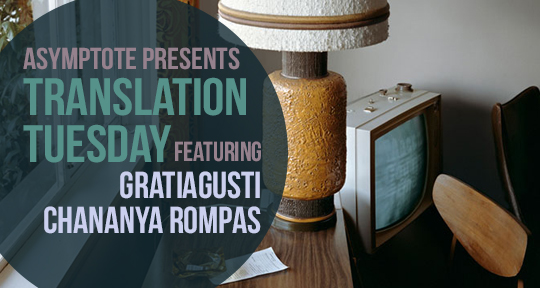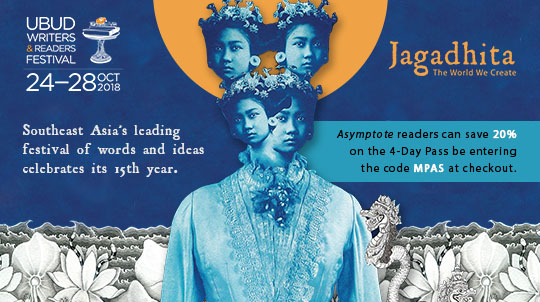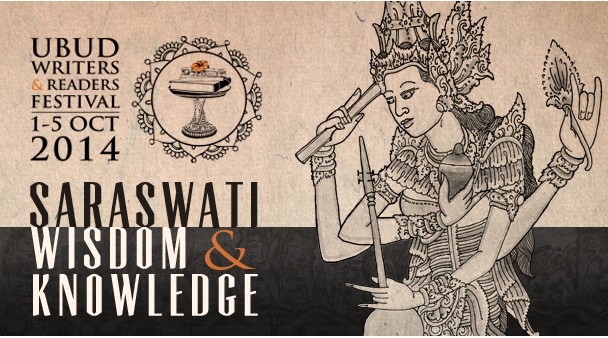This Translation Tuesday, to coincide with our Summer Issue and its standout Indonesian Special Feature, the spotlight is on the subtle, elegant prose of Zen Hae. A colonial administrator longs for the comforts of his nyai —his Indonesian concubine—and the febrile sensations of the land he has subjugated, plundered, and since departed. He has sucked hard on its every pleasure, and the taste has brought everything into question.
may you my nyai be always under the lord’s protection—who allows interest on loans and subjugation of new worlds. be well in your acceptance of all things.
if this lowly one sails to batavia, nyai, wear a blouse and the best batik cloth. and betel nut…chew it gaily—use gambier from barus and quicklime from banten to perfect its redness. there’s no need for a parasol. that’s because we’ve missed the batavia sun from the very start. that’s the eye that kisses our ancestors on the fourth day. under it they supposed the swampland was a future heaven and the bare-chested men were sheep with no shepherd. someday that is where our kingdom shall be made real.
related thereto, wait for this lowly one in jacatra’s bay. welcome him at the mouth of the ciliwung with a three-blossom smile.
we have left the city that belittled us, the country that shall vanish in one smack of the hand. we have swallowed months of curses at sea, and have crawled across almost the entire earth, with a map more wondrous than a dream. we have sojourned at the cape of hope, at goa, coromandel, columbo, malacca, also cities wiped out before dawn. a third of us are dead, another third sick and will die the moment we arrive, and one or two now gone mad. we, though, the strongest men, remain.
we smelled the scent of liquor in the brick houses in the south. that one was he who subdued the mountain wind and boiled our blood into adulthood. we have dreamed for you nyais to pour it into cups when we are tired of building this city and would like to know what will happen ten seconds before doomsday. if this unworthy one grows old, oh lord, even if he shuts his eyes, let it not be at the end of the sword or muzzle of a cannon, nor even from malaria or dysentery, let it be only in your embrace alone, amongst the fragrance and warmth of spices.
if this unworthy one steps foot in batavia, nyai, receive us, your children too: our blood has been tainted and given birth to across the ocean.
Translated from the Indonesian by George A. Fowler

